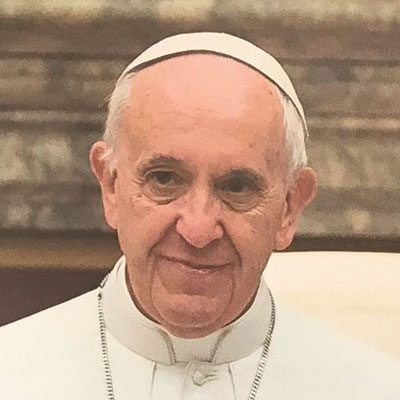Indulgences
An indulgence is a remission of temporal punishment (forgivable, unlike eternal, punishment) a person is due for their sins already forgiven in confession, according to the Catechism of the Catholic Church (1471).
“Every sin ‘leaves its mark’” even after a person has received forgiveness and absolution through the sacrament of reconciliation, Pope Francis wrote in the document proclaiming the Jubilee Year. “Sin has consequences, not only outwardly in the effects of the wrong we do, but also inwardly, inasmuch as ‘every sin, even venial, entails an unhealthy attachment to creatures, which must be purified either here on earth, or after death, in the state called Purgatory,’” he wrote, quoting the Catechism. (Read more)
The purpose of indulgences is not to discard sins, but rather to address the consequences of sin while reducing one’s time spent in Purgatory. You can gain indulgences for yourself or apply them to the souls in Purgatory.
There are two types of indulgences:
- Partial indulgence: Removes part of the temporal punishment.
- Plenary (or full) indulgence: Removes all temporal punishment.
- Be in a state of grace (free from mortal sin).
- Perform the prescribed work (such as prayers, a pilgrimage or a charitable act).
- Fulfill these conditions:
- Go to confession within 20 days before or after the prescribed work.
- Receive Holy Communion, preferably on the day of the visit, or 20 days before/after the visit.
- Pray for the intentions of the pope (often an Our Father, Apostles’ Creed, and other prayer).
- Be detached from sin, even venial sin (to have a sincere heart that doesn’t cling to any kind of sin, even small ones). It’s about truly wanting to avoid sin and grow closer to God.
Indulgences can be applied either to yourself or to the souls of the deceased, but they cannot be applied to other people still living.
Typically, only one plenary indulgence can be obtained per day, but a second is possible this Jubilee Year only by performing a work of charity as specified by the Vatican.
Pilgrimage
Go on a pious pilgrimage to a national, international or local pilgrimage site. Read More.
Works of Mercy and Penance
Formation. Participate in a study on the Vatican II documents or the Catechism, held in a church or other suitable place, “according to the mind of the Holy Father.”
Visits. Spend time with people in need – the sick, prisoners, lonely, elderly, the disabled – “making a pilgrimage to Christ present in them.”
Fasting and abstinence. In a spirit of penance, give up “futile distractions” (real or online) and “superfluous consumption” (through fasting, abstinence or almsgiving) for at least one day.
Defend life and volunteer. Support efforts defending life at all stages or helping abandoned children, struggling youth, the needy, lonely, elderly or migrants. Do acts of community service.
Blessing. Receive a “papal blessing” from your bishop.
Those prevented by “serious reasons” from participating in a pilgrimage or doing acts or mercy and penace – such as cloistered religious, the elderly, the sick, prisoners or caregivers – can obtain the indulgence by uniting spiritually with Jubilee pilgrims, especially through Catholic media, and reciting an Our Father and Apostles’ Creed, “offering up their sufferings or the hardships of their lives.”
- The second work is a work of mercy and penance
- The person attends Mass and receives Holy Communion for a second time that same day
- The person fulfills the other usual conditions
- It is only to be applied for the souls in Purgatory.
For more information, see the Vatican’s full instruction.
Learn more
Hope is “a virtue which must be sourced above all in the grace of God and in the fullness of His mercy.”

